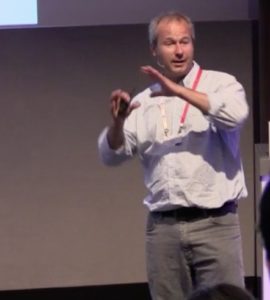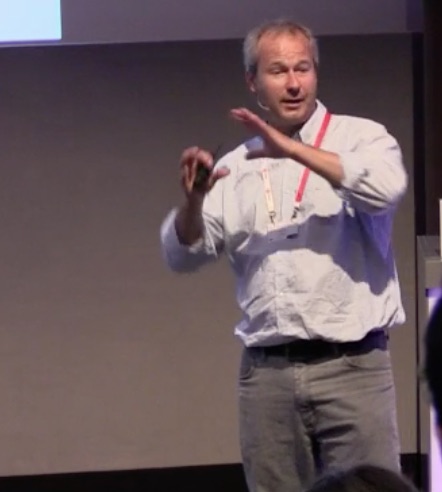 In this video from PASC18, Nils P. Wedi from ECMWF presents: From Weather Dwarfs to Kilometre-Scale Earth System Simulations.
In this video from PASC18, Nils P. Wedi from ECMWF presents: From Weather Dwarfs to Kilometre-Scale Earth System Simulations.
The increasingly large amounts of data being produced b weather and climate simulations and earth system observations is sometimes characterised as a deluge. This deluge of data is both a challenge and an opportunity. The main opportunities are to make use of this wealth of data to 1) improve knowledge by extracting additional knowledge from the data and 2) to improve the quality of the models themselves by analysing the accuracy, or lack thereof, of the resultant simulation data. An example of the former case is improved prediction of large scale phenomena such as El Nino. An example of the latter is the improvement of a Physics parameterisation scheme through detailed analysis of the errors in a large number of datasets.
“One way to realize these opportunities is to use machine learning approaches. As machine learning in weather and climate is a relatively new topic this minisymposium introduces the audience to how machine learning could be used in weather and climate and outlines its implications in terms of computing costs. To ground the ideas in concrete examples it also illustrates the use of machine learning in the weather and climate domain with practical examples.”
Nils P. Wedi has a PhD from Ludwig Maximilian University of Munich and joined ECMWF in 1995. His career at ECMWF encapsulates a diverse range of work both technical and scientific. He leads ECMWF’s Earth System Modelling section that addresses all aspects of scientific and computational performance relating to ECMWF’s forecast model and the ensemble forecasting system. He develops strategies to secure the scalability of the model on future high-performance computing systems. He is the scientific coordinator of the European H2020 projects ESCAPE and ESCAPE-2 to address the challenges of rising energy cost for computing towards affordable, exascale high performance simulations of weather and climate, and he is a member of the World Meteorological Organization working group on numerical experimentation (WGNE).




